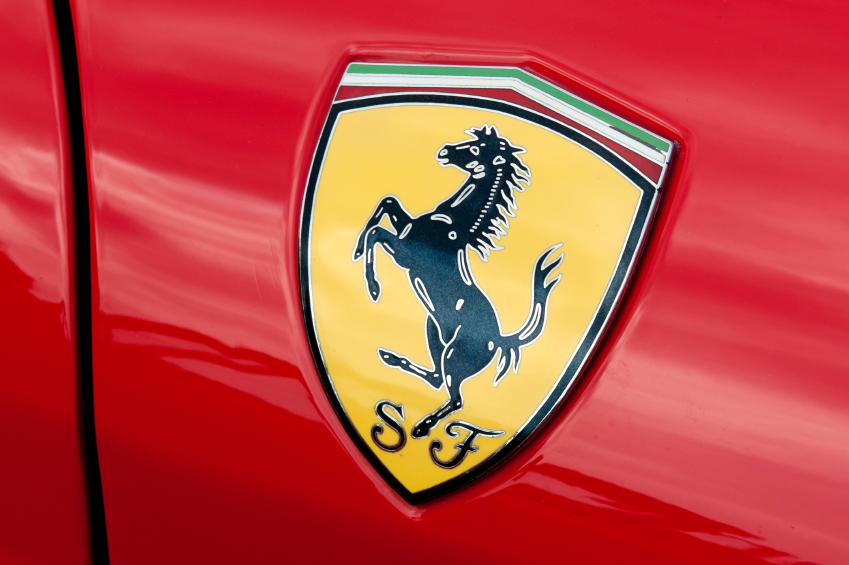Estate Brain Freeze: Why Saving Tax Is the Wrong Place to Start a Family Business Succession Plan

With summer approaching I know I’ll be back to consuming my favorite iced coffee beverages and despite knowing better, I’ll drink the odd one faster than I should, causing one of those excruciating brain freezes.
Another kind of excruciating pain in the brain can come from a different kind of freeze – the estate freeze, sometimes branded “creditor proofing.” Whatever you call it, the estate freeze is often the starting place for business owners planning to transfer their business to the next generation. The estate freeze is also at the center of succession plans that have gone most horrifically awry.
These ill-conceived plans are seldom discussed at the country club for the same reason that most financial frauds go unreported – people are embarrassed about blindly placing their trust in an advisor who implements the wrong technical solution. Not only are business-owning families unhappy with these plans but accounting firms are losing clients and credibility when the plans go bad – and bad they are going!
How Can Saving Tax Be a Bad Thing?
It is hard to fault well-intentioned plans to save tax, but seldom discussed are the unintended consequences that can lead businesses to destroy themselves – along with family relationships, usually in that order. Ask any accountant who’s been around longer than American Idol and they’ll regale you with stories of how tax saved through an estate freeze was dwarfed by the wealth destroyed by the succeeding generation.
For business owners obsessed with saving tax, and for accountants who don’t remind owners that there is so much more to succession planning, the consequences will continue to escalate as legions of aging business owners head for the exit.
I have received a lot of email and phone calls from readers who have implemented estate freezes on the advice of their accountants. They become, to put it gently, rather animated when they describe how they did something they didn’t fully understand and that in the fullness of time has proven to be completely ill-conceived and expensive – expensive to implement and expensive to reverse.
The reversing of estate freezes – aptly called a “thaw” – is a new growth industry.
Estate Freeze Chills Other Strategic Wealth-Protection Options
Here’s the thing about estate freezes that people often miss: freezes always involve gifting shares. Anyone who follows this blog or has read my book will know where I stand on that issue. Even though those gifted shares have only a nominal value they are a gift nonetheless. And as with most gifts, it’s always hard for the recipient to sell it.
The estate freeze usually sets the stage for what I like to describe as the beginning of the “perpetuity project.” This is when a family shifts its thinking away from the business as a money-making asset and toward the business run as a legacy, with the goal of “longevity” trumping all other strategic options for creating value.
In a non-family business (IBM, say), the leadership constantly ask itself in whose hands these assets would create the most value. If the answer is “someone else’s,” the option of selling a division – or the entire company – is explored in the context of creating shareholder value. But across the street at Family Business Inc., the estate freeze creates a deadly culture of ownership continuity – it’s in the family’s hands in perpetuity. Saving tax is the main driver behind the destruction of family business wealth.
When the Stock Price Rockets to the Moon
When an estate freeze goes bad, you can be sure one of one thing has transpired. Namely, the share price has gone through the roof and the kids become fabulously wealthy in a short time – sometimes vastly wealthier than their parents, who have spent a lifetime risking their capital.
This situation, of course, creates interesting family dynamics, not only between parents and the beneficiary of the estate freeze but also among siblings. When only the children working in the business receive gifted shares through an estate freeze and the children outside receive other consideration, at the estate level, the stage is set for a family meltdown Jerry Springer style when the parents die.
Remember, if a business grows rapidly after an estate freeze the parents’ value in the business is frozen going forward, often making it impossible for them to equalize the wealth they leave to each child. Now some commentators might say, “Well, if a business grows fabulously after the estate freeze is it not appropriate that the children in the business be rewarded for their hard work?”
My twofold response is always the same: First, who says hard work creates value? Sometimes stock prices go up not because of hard work but because of good fortune. Similarly, stocks can go down despite the hard work and dedication of well-intentioned children. Second, why not simply pay for performance – pay children for the value they create?
Family businesses seldom get compensation right. The most common mistake is mixing up stock ownership with employment income. And nothing mixes compensation up and complicates family dynamics faster than an estate freeze. Tax efficient? You bet. Three-ring circus just around the corner? You can bank on it.
When the Stock Price Craters into the Moon
In my keynote speeches I talk about how challenging it is for parents who “freeze” and then watch their kids live lavish lifestyles because of some extraordinary good luck in the timing of the freeze. Similarly, it’s difficult for everyone – parents, children in the business and children outside the business – to watch a company flounder and fail after a freeze.
A business owner – especially a founder – having to re-insert him- or herself into the management of a business after a freeze has gone bad is humiliating and dispiriting for the entire family. But the real gnashing of teeth begins when the business recovers after the parent’s intervention and the children who were gifted shares participate in the stock appreciation, again on the back of the founder’s efforts – and again for free.
Estate Freezes Magnify Family Genius – and Incompetence
When parents give stock in their company to their children through an estate freeze, the shares may have a nominal value, but the value that can be created by the established customer list, the brand, the technology and so much more that resulted from a previous generation’s risk-taking is seldom valued because the succeeding generation risked nothing. Attributing the full value of a sudden stock appreciation after a freeze to the talents of the succeeding generation is as zany as blaming them for a sudden decline in the price.
But that’s what an estate freeze does: it magnifies family genius – and incompetence – precisely because the market rules of ownership were violated through gifting, all in the name of saving tax. Families pay the highest price when they lose their mutual trust and respect for one another when gifting goes bad. And when trust is lost, family members resorting to litigation is the saddest progression of a family business in decline (Read my earlier post, Boxing in Court: A Game the Whole Family Can Play.)
If Freeze You Must, Consider This Half Twist
The real lesson here is that business owners risk capital. If you want to save tax through an estate freeze, the succeeding generation needs to pay for those shares in a side deal outside the business. If children aren’t open to this idea, heads up: they don’t want your business. It’s better to find out now!
I haven’t met too many kids who say no to receiving a free business through an estate freeze. In fact, when gifting stock through an estate freeze is proposed, it is miraculous how enthusiastic and passionate beneficiaries become about the unbridled possibilities of the family business. No one’s looking for the risks to the business because nobody is risking any money.
As time marches on, I meet more beneficiaries of estate freezes than I care to count who wish their parents had kept their gift to themselves, sold their business and passed on their wealth instead. Destroying a business by building it to last, building it to pass via an estate freeze to save tax, can be like drinking a frozen drink way too fast – it may taste good, but it’s excruciatingly painful, the kind of pain that lasts for what seems like a generation.
Advisors, do you take the time to fully explain what a business – and a family – will look like when there is a dramatic increase or decrease in the value of gifted stock after an estate freeze?




